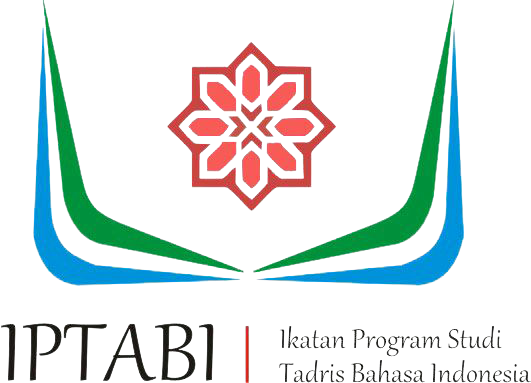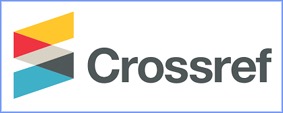Dekulturasi Budaya Yunani dalam Anthropodipus Adaptasi Oedipus di Colonus oleh Iswadi Pratama
DOI:
https://doi.org/10.29240/estetik.v7i1.7809Keywords:
Dekulturasi, Adaptasi, Anthropodipus, Iswadi Pratama, Teater SatuAbstract
Iswadi Pratama, founder and artistic director of Teater Satu Lampung is an artist that focused to study two art disciplines at once, literature and theatre. His works are full of ideological criticism and responses to the political situation and the surrounding environment. In the show entitled Anthropodipus, Iswadi Pratama performs an intertextual interpretation and rewriting of the text Oedipus in Colonus by Sophocles with several anthropological approaches in artistic visualization, decoration, props, costumes, music, make-up, characterizations, and choreography. This paper aims to examine creativity and innovation based on Iswadi Pratama's artistic work with members of the Lampung Satu Theater in translating the Oedipus text in Colonus into Anthropodipus. The results of acculturation of various cultures in the creation of Anthropodipus' works resulted in the deculturation of Greek culture in the hypogram text. This makes the show held by Teater Satu Lampung unique and reflects Iswadi Pratama's artistic passion and innovation. The deculturation is intended to make works written before this Christian era closer to the audience in 2018 when this stage is being held. As a result, this stage received a positive response when it was staged in Lampung, Padang Panjang, and Jakarta from the number of viewers and the show's reviews from critics.
Downloads
References
Anggara, Semi Ikra, Arthur S Nalan, Heri Herdini. Subjek Pascakolonial dalam Pementasan Teater Shakespeare Carnivora Karya Benny Yohanes. Pantun. Vol 5, No 1. (2020)
Feldman E.B. Art AS Image and Idea, New Jersey: Prentice Hall-Inc. (1967)
Harun, Afrizal, Kurniasih Zaitun, and Susandro Susandro. “Postdramatik: Dramaturgi Teater Indonesia Kontemporer.†Dance and Theatre Review 4, no. 2 (2022): 57–69. https://doi.org/10.24821/dtr.v4i2.6450.
JuzefoviÄ, AgnieÅ¡ka, and LaimutÄ— MonginaitÄ—. Estetika, 2016. https://doi.org/10.3846/1539-s.
Lantika, Suci, Sulaiman Juned, and Sahrul Nazar. “Penciptaan Teater Meretas Adab Berangkat Dari Tradisi Melangun Suku Anak Dalam.†Gorga : Jurnal Seni Rupa 10, no. 2 (2021): 268. https://doi.org/10.24114/gr.v10i2.27137.
McCarthy, Kevin F. The Performing Arts in a new era. Santa Monica, CA: Rand, 2001.
Molina, L. & Albir, H.A. Translation Techniques Revisited: A Dynamic and Functionalist Approach. Meta, XLVII, No. 4, hal. 492-512. (2021)
Moh. Wail. “Biografi Garam†Etnografi Masyarakat Madura pada Tubuh Teater. Pantun.Fenomena Kultural Dalam Paradigma Multikultural, Vol 4, No 1. (2019)
Newmark, P. A Textbook of Translation. New York/London: Prentice Hall. (1988)
Nora Shuart Faris Uses Intertextuality in classroom and educational research. United Stated of America: Information Age Publishing. Hlm 375. (2004)
Webologi
Laman Profil Iswadi Pratama di Wikipedia. Diakses di https://id.wikipedia.org/wiki/Iswadi_Pratama pada tanggal 11 Maret 2023.
Downloads
Published
How to Cite
Issue
Section
Citation Check
License
Copyright (c) 2024 Adhy Pratama Irianto

This work is licensed under a Creative Commons Attribution-NonCommercial-ShareAlike 4.0 International License.
Authors who publish with ESTETIK : Jurnal Bahasa Indonesia agree to the following terms:
- Authors retain copyright and grant the journal right of first publication with the work simultaneously licensed under a Creative Commons Attribution-NonCommercial-ShareAlike 4.0 International License (CC BY-NC-SA 4.0) that allows others to share the work with an acknowledgment of the work's authorship and initial publication in this journal.
- Authors are able to enter into separate, additional contractual arrangements for the non-exclusive distribution of the journal's published version of the work (e.g., post it to an institutional repository or publish it in a book), with an acknowledgment of its initial publication in this journal.
- Authors are permitted and encouraged to post their work online (e.g., in institutional repositories or on their website) prior to and during the submission process, as it can lead to productive exchanges, as well as earlier and greater citation of published work (See The Effect of Open Access).






